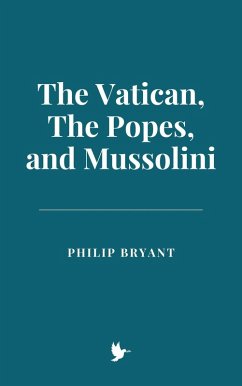Beginning with the Lateran Treaty of 1929, which secured the Vatican's independence and recognized Catholicism as Italy's official religion, the book explores how Popes Pius XI and Pius XII navigated the complex challenges posed by fascist and Nazi ideologies. The Vatican's cautious diplomacy allowed it to maintain a degree of autonomy and provide covert assistance to persecuted individuals, particularly during the Holocaust, yet the Church's reluctance to openly condemn fascist abuses and Nazi atrocities remains a deeply contested aspect of its legacy.
In the post-war years, the Vatican faced new pressures as communism rose and Italian society embraced secular, democratic values. Pope Pius XII's alignment with anti-communist forces, particularly through support for the Christian Democratic Party, highlighted the Church's ongoing struggle to balance its spiritual mission with its involvement in political affairs. The ethical complexities of the Vatican's wartime and post-war actions catalyzed both internal reform movements and public scrutiny, setting the stage for transformative changes under the Second Vatican Council.
Ultimately, the book offers a nuanced reflection on the Vatican's role in a turbulent era, grappling with the moral dilemmas of political alliances and the challenges of upholding spiritual integrity in an evolving world. It considers how this period shaped the Church's approach to justice, human rights, and its engagement with modernity, providing insight into the Vatican's legacy and its quest for moral renewal.
Dieser Download kann aus rechtlichen Gründen nur mit Rechnungsadresse in A, B, CY, CZ, D, DK, EW, E, FIN, F, GR, H, IRL, I, LT, L, LR, M, NL, PL, P, R, S, SLO, SK ausgeliefert werden.









